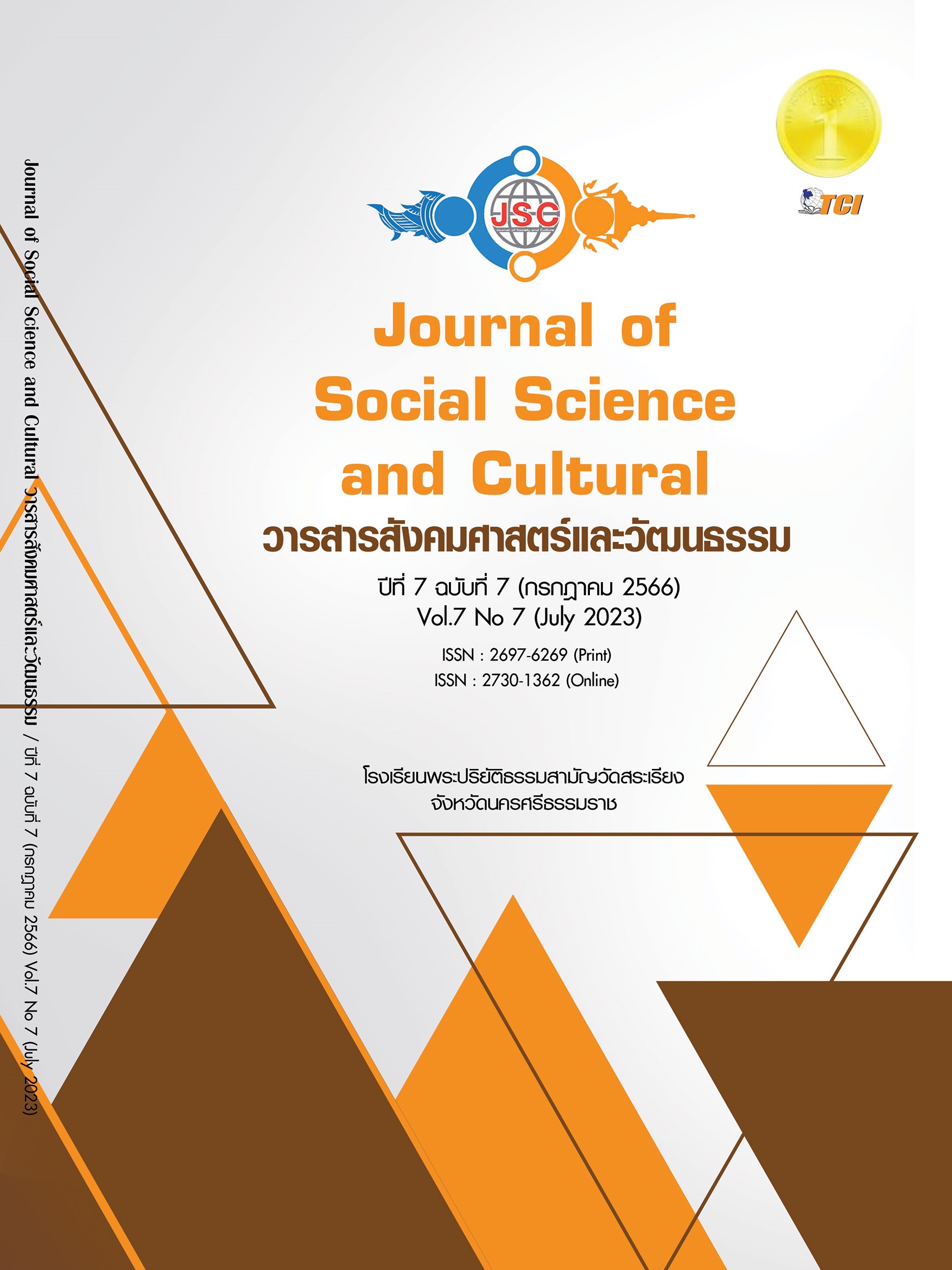ENHANCING ADDITION SKILLS OF A CHILD WITH BORDERLINE INTELLECTUAL DISABILITIES USING STEAM BASED EDUCATION PROJECT
Main Article Content
Abstract
The objective of this research was to develop addition skills using Fun Truck-themed STEAM Project-based Learning for student with a borderline intellectual disability. This research focused on the case study of 8-year-old male studying in the second grade at Inclusive Education School, Chiang Mai Province. The research tools included four personalized learning plans for the Fun Truck-themed learning unit, pre- and post-learning assessments on Kahoot application, behavior recording forms during the project, project assessment rubrics, and behavior observation forms during the project with video recording. The data collected were analyzed to obtain percentages and means and presented using tables, graphs, and descriptive images. The results of this research indicated that: The scores and averages of all 4 plans at the pretest were 19.25 (72.50%) and those at the posttest were 24.74 (90.83%). The score difference between Plan 2 and Plan 4 was 7.3 and calculated as 24.44% (Excluding Plan 1 because both at the pretest and the posttest got the same score of 10). Upon observing the overall learning behavior, it was found that when using Fun Truck-themed STEAM Project-based Learning, which had a step-by-step process ranging from easy to difficult, together with interesting media that could be realistically used, and appropriate reinforcement, the case studies showed a consistent improvement in development. They were possible to add up numbers with results not exceeding 100 by following the steps independently with agility, increased confidence in learning mathematics. This would serve as a foundation for studying higher-level mathematics.
Article Details
References
กระทรวงศึกษาธิการ. (2559). รายงานการวิจัยเพื่อจัดทำข้อเสนอนโยบายการส่งเสริมการจัดการศึกษาด้านสะเต็มศึกษาของประเทศไทย. กรุงเทพมหานคร: สำนักงานเลขาธิการสภาการศึกษา.
กุลยา ก่อสุวรรณ. (2553). การสอนเด็กที่มีความบกพร่องระดับน้อย. กรุงเทพมหานคร: มหาวิทยาลัยศรีนครินทรวิโรฒ.
กุลยา ก่อสุวรรณ และยุวดี วิริยางกูร. (2561). การสอนและช่วยเหลือบุคคลที่มีความบกพร่องทางสติปัญญาและเรียนรู้ช้า (ฉบับปรับปรุงครั้งที่ 2). เชียงใหม่: คณะศึกษาศาสตร์ มหาวิทยาลัยเชียงใหม่.
ปาริชาติ ประเสริฐสังข์ และณัฐวุฒิ พิมขาลี. (2560). การพัฒนาการจัดกิจกรรมการเรียนรู้แบบสะเต็มศึกษา กลุ่มสาระการเรียนรู้คณิตศาสตร์ ชั้นประถมศึกษาปีที่ 3. วารสารศึกษาศาสตร์ มหาวิทยาลัยมหาสารคาม, 11(1), 132-143.
รัฐพงษ์ โพธิรังสิยากร. (2561). ผลการจัดการเรียนรู้สังคมศึกษาโดยใช้โครงงานเป็นฐานร่วมกับแนวคิดสะตีมศึกษา ที่มีต่อความคิดสร้างสรรค์และผลสัมฤทธิ์ของนักเรียนชั้นมัธยมศึกษาปีที่ 5. ใน วิทยานิพนธ์ปริญญามหาบัณฑิต สาขาวิชาวิทยาการทางการศึกษาและการจัดการเรียนรู้. มหาวิทยาลัยศรีนครินทรวิโรฒ.
วศิณีส์ อิศรเสนา ณ อยุธยา. (2559). เรื่องน่ารู้เกี่ยวกับ STEM Education (สะเต็มศึกษา). กรุงเทพมหานคร: สำนักพิมพ์แห่งจุฬาลงกรณ์มหาวิทยาลัย.
วิริยะ ฤาชัยพานิชย์ และกมลรัตน์ ฉิมพลี. (2559). ห้องเรียนแห่งอนาคต เปลี่ยนครูให้เป็นโค้ช! กรุงเทพมหานคร: พิมพ์ดี.
วิสูตร โพธิ์เงิน. (2560). STEAM ศิลปะเพื่อสะเต็มศึกษา: การพัฒนาการรับรู้ความสามารถและแรงบันดาลใจให้เด็ก. วารสารศรุศาสตร์, 45(1), 320-334.
ศุภวัลย์ ตันวรรณรักษ์. (2558). การจัดการเรียนรู้ STEM ในระดับปฐมวัย. กรุงเทพมหานคร: นานมีบุ๊คส์พับลิเคชั่นส์.
สุนารี ศรีบุญ. (2561). ผลการจัดการเรียนรู้ตามแนวคิด STEAM Education โดยใช้ปัญหาเป็นฐาน เพื่อพัฒนาทักษะและกระบวนการทางคณิตศาสตร์ สำหรับนักเรียนชั้นมัธยมศึกษาปีที่ 1. วารสารครุศาสตร์ จุฬาลงกรณ์มหาวิทยาลัย, 47(1), 526-543.
Hwang, J. & Taylor, J. (2016). Stemming on STEM: A STEM Education Framework for Students with Disabilities. Journal of Science Education for student with Disabilities, 19(1), 39-49.
Park, H. J. et al. (2016). Teachers' perceptions and practices of STEAM education in South Korea. EurasiaJournal of Mathematics, Science and TechnologyEducation, 12(7),1739-1753.


